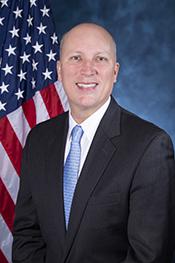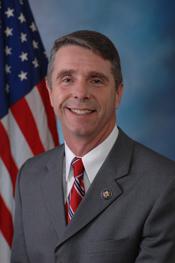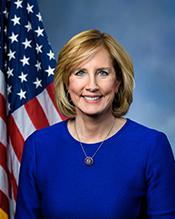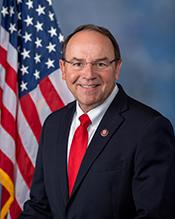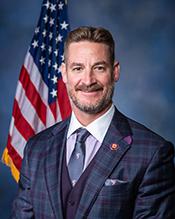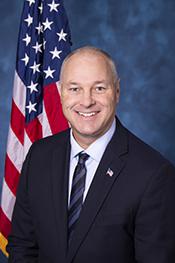0
0
0
No Taxpayer Funding for the World Health Organization Act
12/15/2023, 3:53 PM
Summary of Bill HR 343
Bill 118 hr 343, also known as the No Taxpayer Funding for the World Health Organization Act, is a piece of legislation introduced in the US Congress. The main purpose of this bill is to prohibit the use of federal funds to support the World Health Organization (WHO).
The bill states that the United States should not provide any financial assistance to the WHO due to concerns about the organization's handling of the COVID-19 pandemic. It argues that the WHO has not been transparent in its communication and has not effectively addressed the spread of the virus.
Supporters of the bill believe that the US should not be funding an organization that they feel has not fulfilled its responsibilities in protecting global health. They argue that taxpayer dollars should not be used to support an organization that they believe has failed to adequately respond to the pandemic. Opponents of the bill argue that cutting funding to the WHO could have negative consequences for global health efforts. They believe that the WHO plays a crucial role in coordinating international responses to health crises and that cutting funding could hinder these efforts. Overall, the No Taxpayer Funding for the World Health Organization Act is a controversial piece of legislation that raises questions about the US government's role in supporting global health organizations. It is currently being debated in Congress, and its outcome remains uncertain.
The bill states that the United States should not provide any financial assistance to the WHO due to concerns about the organization's handling of the COVID-19 pandemic. It argues that the WHO has not been transparent in its communication and has not effectively addressed the spread of the virus.
Supporters of the bill believe that the US should not be funding an organization that they feel has not fulfilled its responsibilities in protecting global health. They argue that taxpayer dollars should not be used to support an organization that they believe has failed to adequately respond to the pandemic. Opponents of the bill argue that cutting funding to the WHO could have negative consequences for global health efforts. They believe that the WHO plays a crucial role in coordinating international responses to health crises and that cutting funding could hinder these efforts. Overall, the No Taxpayer Funding for the World Health Organization Act is a controversial piece of legislation that raises questions about the US government's role in supporting global health organizations. It is currently being debated in Congress, and its outcome remains uncertain.
Congressional Summary of HR 343
No Taxpayer Funding for the World Health Organization Act
This bill prohibits the United States from providing any assessed or voluntary contributions to the World Health Organization.
Read the Full Bill
Current Status of Bill HR 343
Bill HR 343 is currently in the status of Bill Introduced since January 12, 2023. Bill HR 343 was introduced during Congress 118 and was introduced to the House on January 12, 2023. Bill HR 343's most recent activity was Referred to the House Committee on Foreign Affairs. as of January 12, 2023
Bipartisan Support of Bill HR 343
Total Number of Sponsors
1Democrat Sponsors
0Republican Sponsors
1Unaffiliated Sponsors
0Total Number of Cosponsors
86Democrat Cosponsors
0Republican Cosponsors
86Unaffiliated Cosponsors
0Policy Area and Potential Impact of Bill HR 343
Primary Policy Focus
International AffairsPotential Impact Areas
- Diplomacy, foreign officials, Americans abroad
- Foreign aid and international relief
- International organizations and cooperation
- United Nations
- World health
Alternate Title(s) of Bill HR 343
No Taxpayer Funding for the World Health Organization Act
No Taxpayer Funding for the World Health Organization Act
To prohibit United States assessed and voluntary contributions to the World Health Organization.
Comments
Sponsors and Cosponsors of HR 343
Latest Bills
Providing amounts for the expenses of the Committee on Ethics in the One Hundred Nineteenth Congress.
Bill HRES 131December 12, 2025
Providing for congressional disapproval under chapter 8 of title 5, United States Code, of the rule submitted by the Bureau of Land Management relating to "Central Yukon Record of Decision and Approved Resource Management Plan".
Bill HJRES 106December 12, 2025
Expressing the sense of the House of Representatives in condemning the Government of the People's Republic of China for its harassment and efforts to intimidate American citizens and other individuals on United States soil with the goal of suppressing speech and narratives the People's Republic of China finds unwelcome.
Bill HRES 130December 12, 2025
Providing for congressional disapproval under chapter 8 of title 5, United States Code, of the rule submitted by the Bureau of Land Management relating to "North Dakota Field Office Record of Decision and Approved Resource Management Plan".
Bill HJRES 105December 12, 2025
Providing for congressional disapproval under chapter 8 of title 5, United States Code, of the rule submitted by the Bureau of Land Management relating to "Miles City Field Office Record of Decision and Approved Resource Management Plan Amendment".
Bill HJRES 104December 12, 2025
Providing amounts for the expenses of the Select Committee on the Strategic Competition Between the United States and the Chinese Communist Party in the One Hundred Nineteenth Congress.
Bill HRES 104December 12, 2025
Critical Access for Veterans Care Act
Bill S 1868December 12, 2025
OATH Act of 2025
Bill S 1665December 12, 2025
A bill to extend the authority for modifications to the Second Division Memorial in the District of Columbia.
Bill S 1353December 12, 2025
Saving Our Veterans Lives Act of 2025
Bill S 926December 12, 2025
